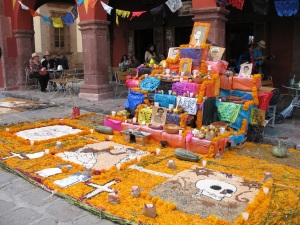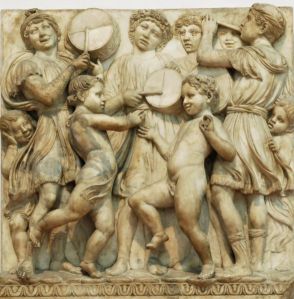What’s really at stake when a Kentucky county clerk cites “God’s authority” for her refusal to issue marriage licenses to gay couples—putting that authority above the Constitution, the Supreme Court’s order and her own sworn oath to uphold the laws of the state of Kentucky—and is willing to go to jail for her stand?
It’s striking that ordinary people on both sides of the issue apparently have no idea. Nor do Rand Paul or Ted Cruz—who, as U.S. Senators and Presidential candidates, ought to know better.
The clerk, Kim Davis, and her supporters see it as a First Amendment issue: according to a fellow clerk, “a lot of people … died for that right, and I think we should we able to exercise it.” Rand Paul says it’s “absurd to put someone in jail for exercising their religious liberties.” Ted Cruz asks “every Believer, every Constitutionalist, every lover of liberty to stand with Kim Davis.”

But the First Amendment only guarantees your right to hold your personal religious beliefs and personally express them; it doesn’t guarantee your right to impose your beliefs on others. As an elected, sworn civil servant, the clerk is obliged to carry out the law—in this case, by issuing marriage licenses to all qualified applicants, including gay ones.
On the other side, according to the New York Times, “Ms. Davis’s critics, many of whom appeared to be in their 20s and 30s, argued that she personified a dated approach to marriage.” Also, as one said, “Christianity … supports love in all ways, so it seems kind of contradictory that they’re out here … discriminating.”
But this case has no more to do with progress, love, or discrimination than it does with the exercise of personal First Amendment rights. It’s about the rule of civil law in a democracy.
No less a founding father than Thomas Jefferson wrote, in the Virginia Statute for Religious Freedom, the words that have been used to set legal precedent in this area: while it would be a “dangerous fallacy” for the state to “restrain the profession or propagation of principles,” it is time for the state “to interfere when principles break out into overt acts against peace and good order.”
Or, as Judge David L. Bunning of Federal District Court, who has ruled three times against Davis’s position, put it: “If you give people the opportunity to choose which orders they follow, that’s what potentially causes problems.”
In this case, “peace and good order” means issuing licenses as the law directs; the “problems” caused by refusing to do so amount, essentially, to anarchy. And if we held the “authority of God” above that of the Constitution, we’d be living in a theocracy, not a democracy.
Since Ms. Davis refuses either to comply or resign, the law, in the form of Judge Bunning, has sent her to jail. That may make her a martyr to all those Christians who seem to think they’d rather live in a theocracy. To them, I would say, take a good look at theocracy in action: the Islamic State.














